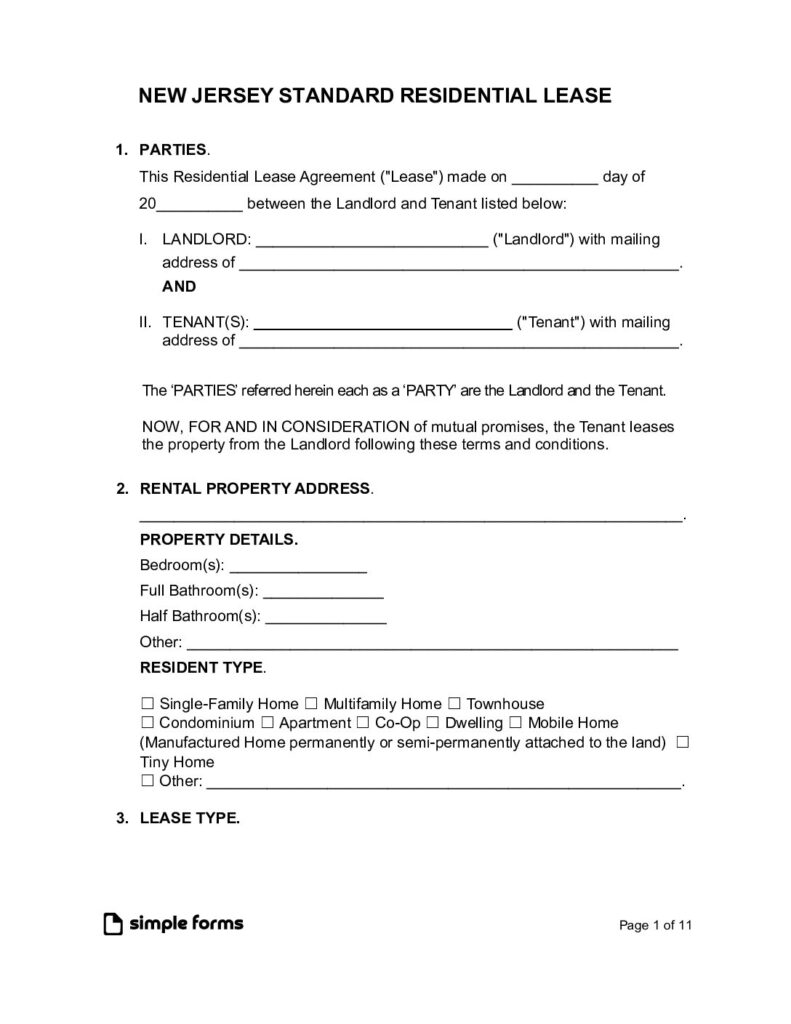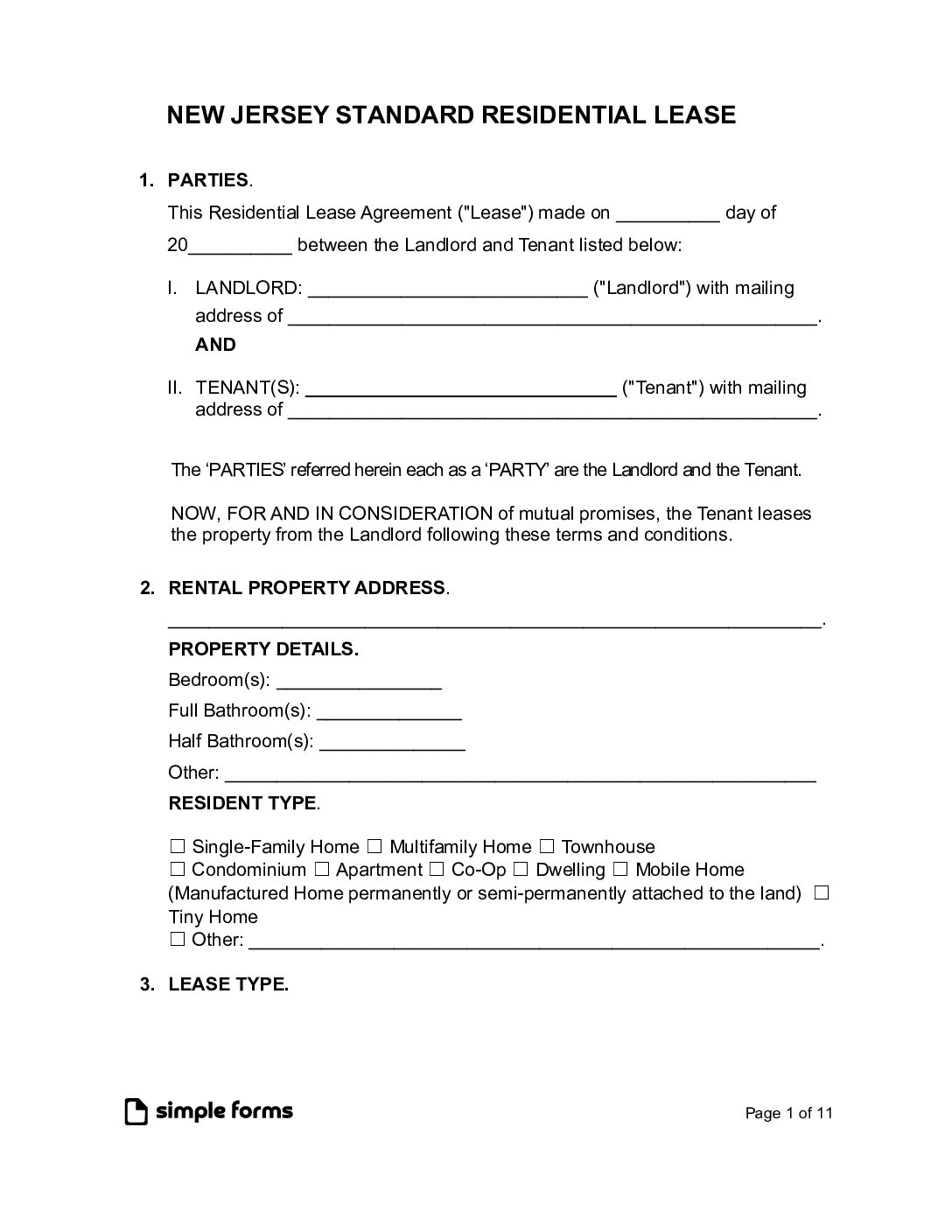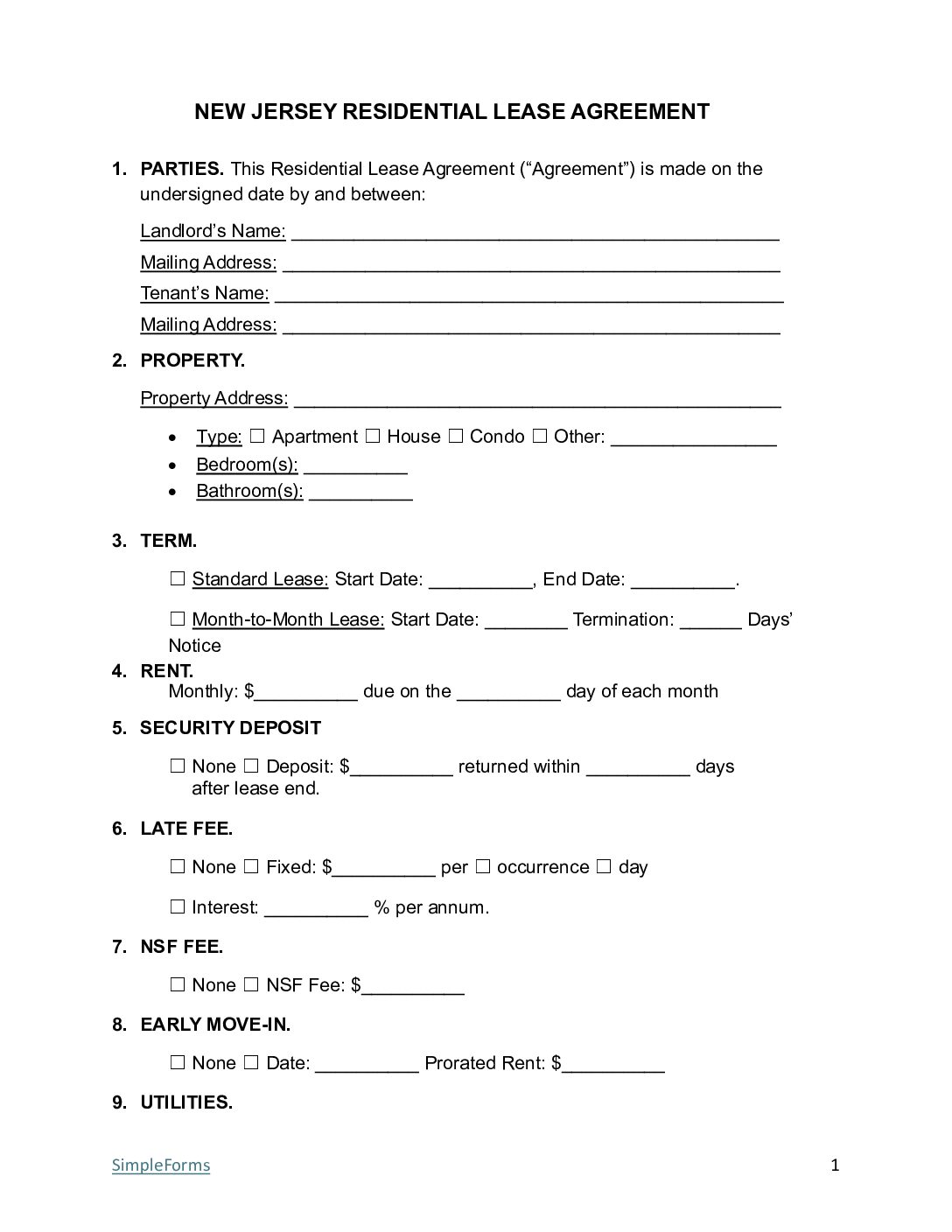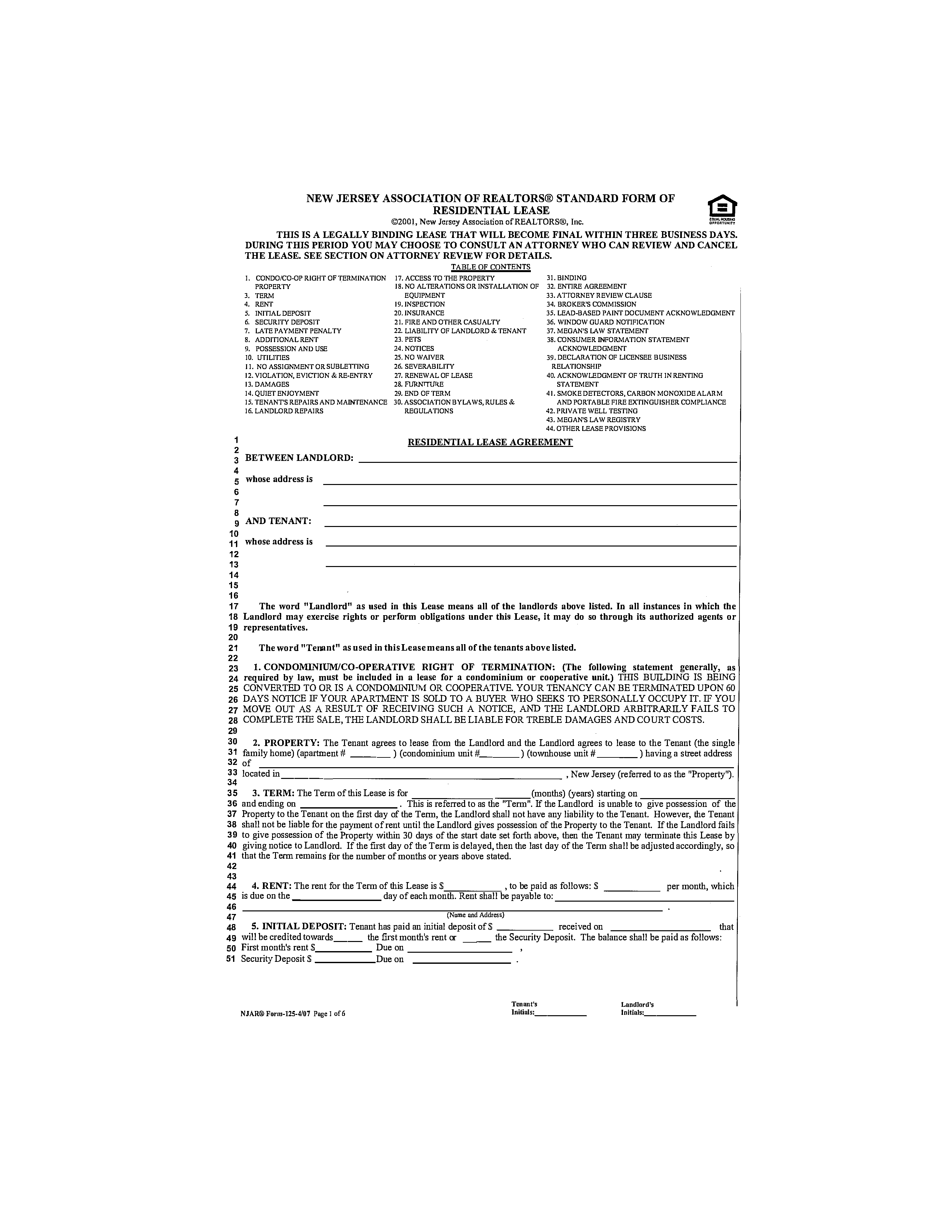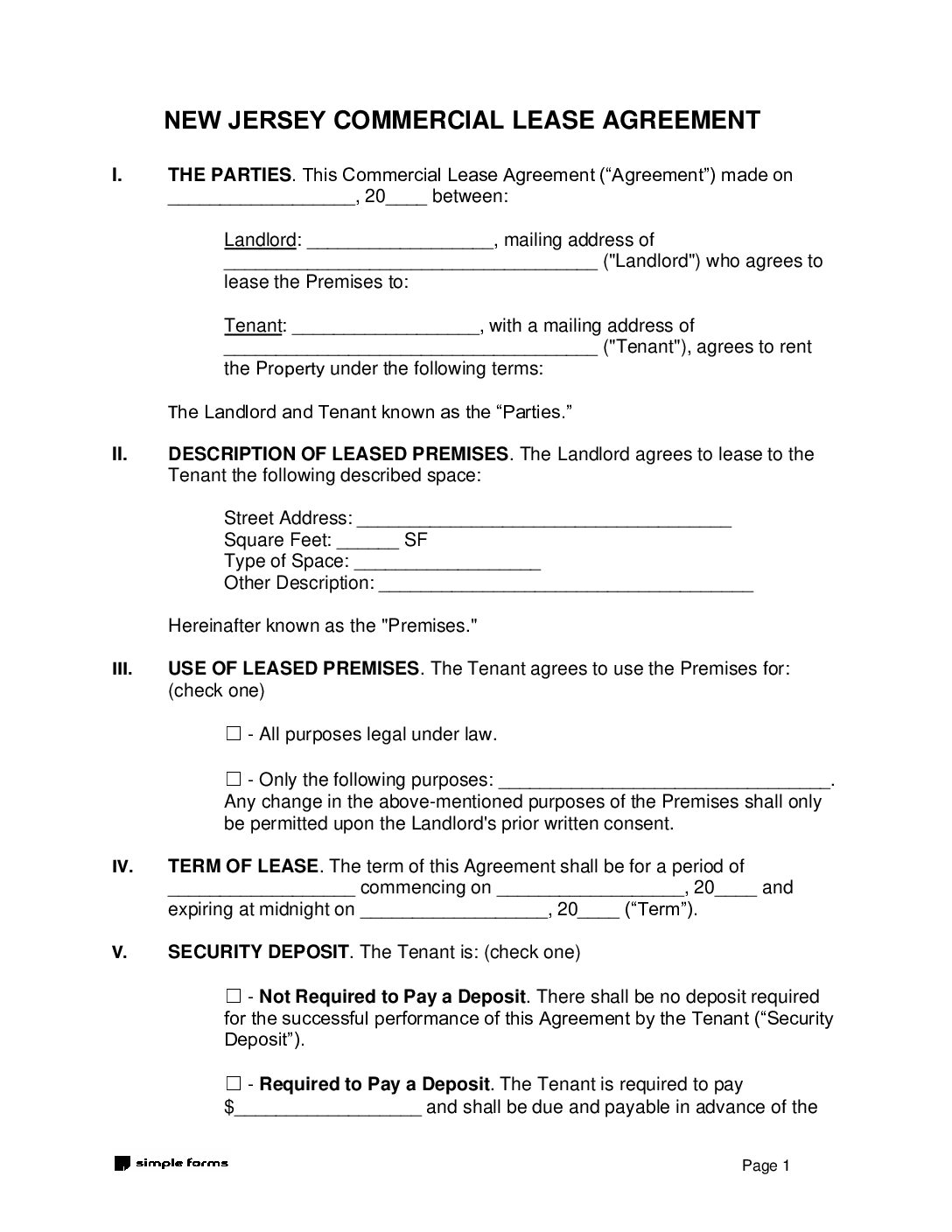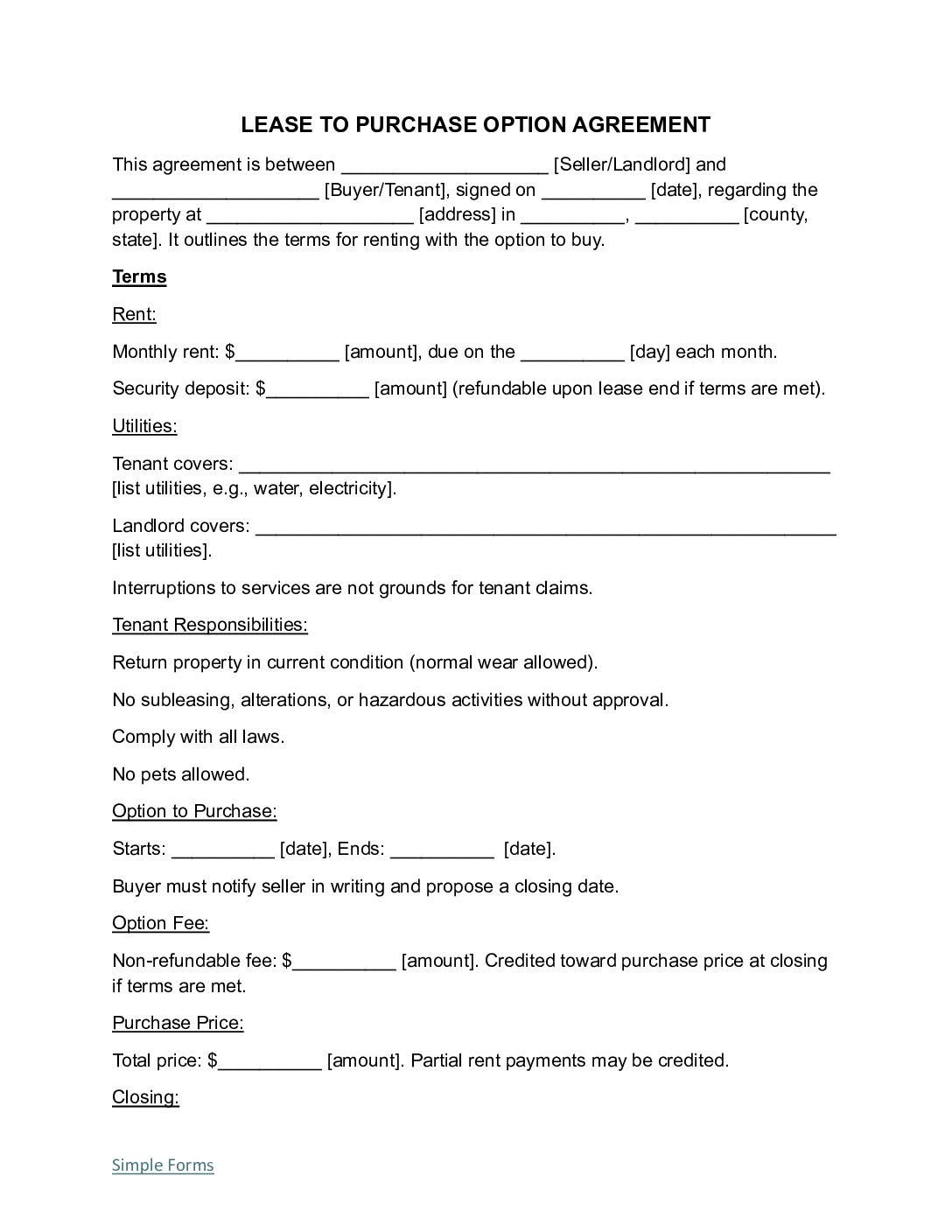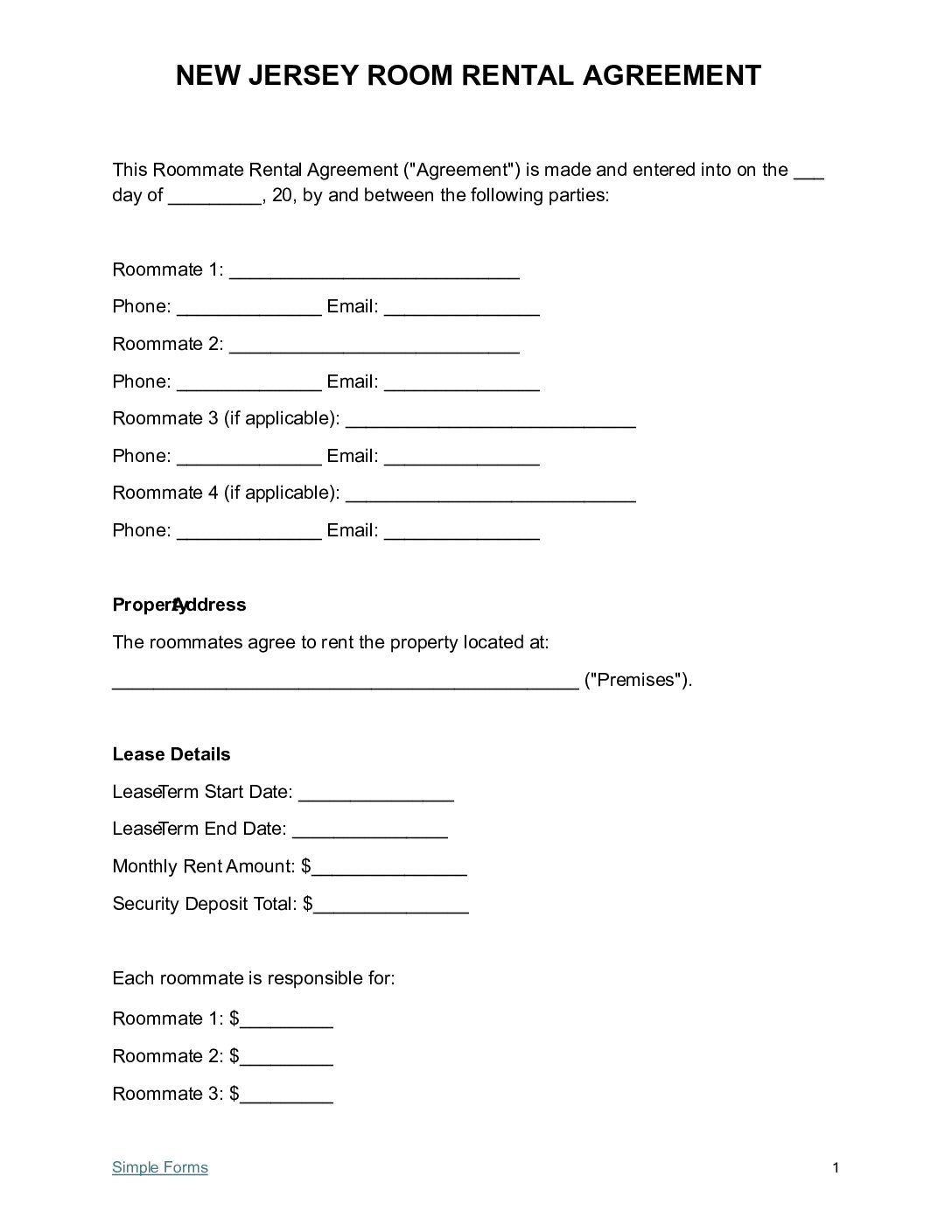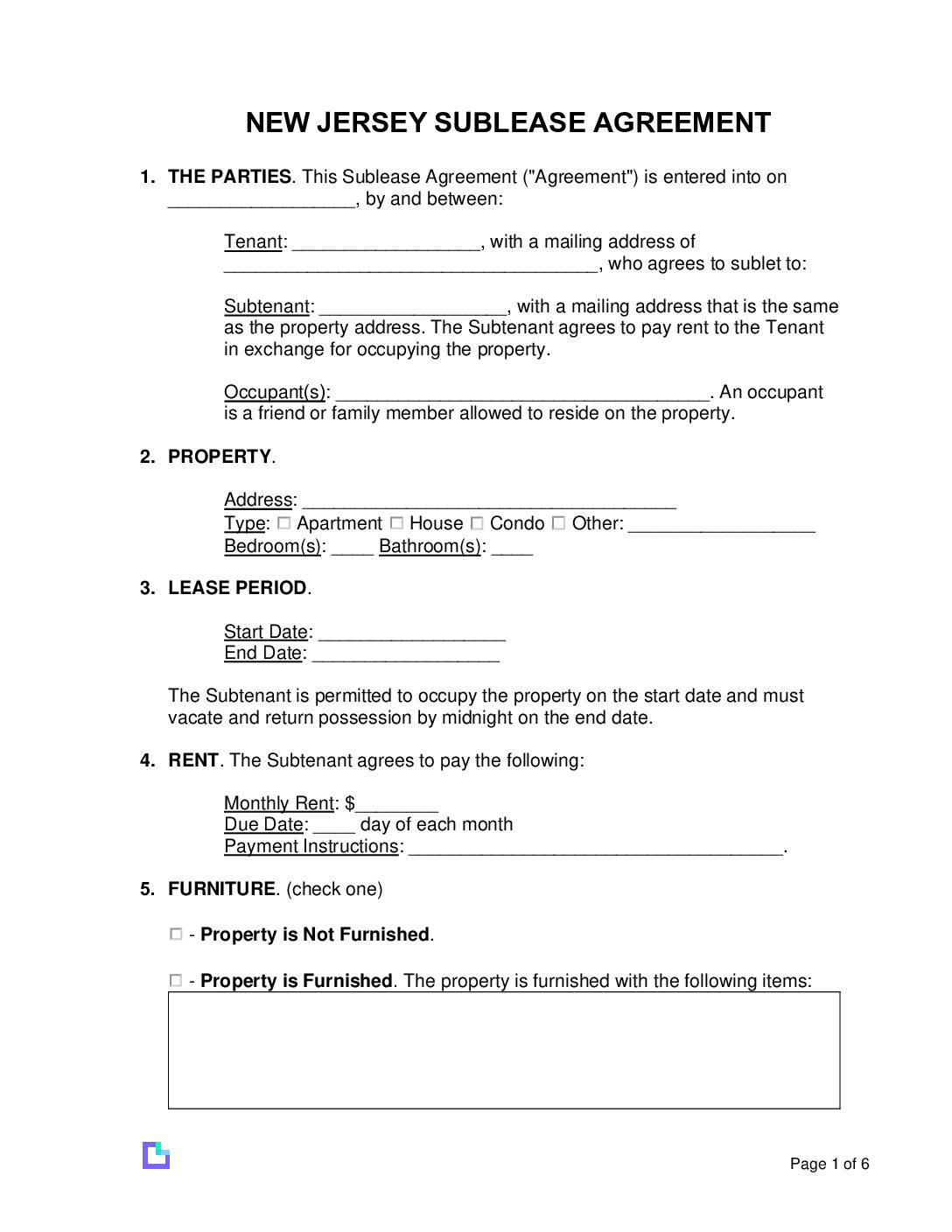Rental Application – The Landlord can request a rental application from Tenants to verify the financial credentials. Once approved, both parties can sign the New Jersey rental lease agreement form.
A rent receipt template confirms that a Tenant has paid rent in cash. The Landlord fills it out after payment, including the amount, payment method, and signature.
By Type (7)
| Residential Lease Agreement – Fixed rental term for one-year (12-months) or more. Download: PDF | Word (.docx) |
|
| Assoc. of Realtors Lease Agreement – Standardized legal contract used by Realtors for a Landlord and Tenant when renting a home. Download: PDF |
|
| Commercial Lease Agreement Download: PDF |
|
| Month-to-Month Lease Agreement Download: PDF | Word (.docx) |
|
| Rent to Own Lease Agreement Download: PDF | Word (.docx) |
|
| Room Rental Lease Agreement Download: PDF | Word (.docx) |
|
| Sublease Agreement Download: PDF | Word (.docx) |
What the form covers?
This New Jersey Rental Lease Agreement includes New Jersey landlord-tenant relationship laws:
- New Jersey Residential Landlord-Tenant Laws
- Security Deposit Law
- Lease Termination
- Landlord’s Access to the Property
- Required Disclosure Forms
- Rent Due Date plus Late Fees
New Jersey Residential Landlord-Tenant Laws
Summary: The New Jersey landlord and tenant laws outline the rights and responsibilities of both parties.[1]
Security Deposit Law
Summary:
- 30 Days – Landlords must return the security deposit within 30 days of lease termination.[2]
- Itemized List – Deductions must be itemized and shared with the tenant.
- Maximum – The security deposit cannot exceed one and a half (1.5) months’ rent.
Lease Termination
Summary: Both landlords and tenants can terminate a lease under certain conditions:
- Landlord’s Ability to Terminate
- Notice periods depend on the reason for termination (e.g., 3 days for disorderly conduct, 30 days for most other reasons).
- Tenant’s Ability to Terminate
- Tenants may terminate due to habitability issues after notifying the landlord.
- 30-day notice required for month-to-month leases.[3]
Landlord’s Access to Property
Summary: Landlords must provide reasonable notice before entering a rental property unless it’s an emergency.[4]
Required Disclosure Forms (2)
Summary:
- Lead-Based Paint Disclosure Form – Landlords must provide a brochure if the property was built before 1978.[5]
- Truth-in-Renting Act – Landlords must provide tenants with a copy of the Truth-in-Renting Guide.[6]
- Flood Zone Disclosure – This form informs renters if a property is in a flood-prone area and whether flood insurance may be required while renting.
- Window Guard Disclosure – This disclosure is mandated to protect children from falling out of windows.
Paying Rent
Summary:
- Grace Period – No grace periods. A 5-day grace period is required for late rent payments for certain senior tenants.[7]
- Maximum Late Fee – No specific laws limit late fees, but they must be reasonable and agreed upon in the lease.
- NSF Fees – No specific state-mandated rules for NSF fees, but they must be disclosed in the lease agreement.[8]
